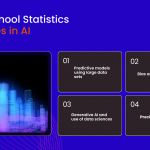Mathematics in Class 6 lays the foundation for all higher-level concepts in middle and high school. It’s the stage where students transition from basic arithmetic to more advanced problem-solving and logical reasoning. Understanding the important topics at this level helps students build strong fundamentals and gain confidence in handling numbers (Refer).
1. Number System
The number system is one of the most crucial areas. Students learn:
- Whole numbers, natural numbers, and integers.
- Factors, multiples, prime numbers, and composite numbers.
- The concept of HCF (Highest Common Factor) and LCM (Lowest Common Multiple).
This builds the groundwork for understanding fractions, decimals, and algebra later.
2. Fractions and Decimals
Fractions and decimals are introduced in detail:
- Addition, subtraction, multiplication, and division of fractions.
- Converting fractions into decimals and vice versa.
- Real-life applications like money, measurements, and percentages.
3. Algebra Basics
Students begin their journey into algebra:
- Using letters to represent numbers.
- Understanding simple equations.
- Learning to simplify and solve small algebraic expressions.
4. Geometry
Geometry develops spatial understanding:
- Basic shapes and their properties.
- Understanding angles, lines, and triangles.
- Symmetry and simple constructions using a compass and ruler.
5. Mensuration
Mensuration introduces the measurement of 2D and 3D shapes:
- Perimeter and area of squares, rectangles, and triangles.
- Introduction to volume and surface area of cubes and cuboids.
6. Data Handling
Students learn to collect, organize, and interpret data:
- Drawing bar graphs and pictographs.
- Reading tables and charts.
- Understanding averages and simple statistics.
7. Practical Applications of Mathematics
Mathematics in Class 6 connects with real life:
- Word problems based on time, distance, and money.
- Application of fractions and percentages in shopping and discounts.
- Logical reasoning questions to enhance thinking skills.
FAQs on Class 6th Maths – An Overview of Important Topics
Why is Class 6th Maths considered so important?
Class 6 is the stage where students shift from basic arithmetic to advanced mathematical concepts. Topics like fractions, decimals, and algebra build the foundation for higher classes. A strong understanding at this level makes it easier to grasp complex topics in algebra, geometry, and data handling later on.
How can students improve their number system skills?
Students can practice identifying factors, multiples, prime and composite numbers through regular exercises. Solving HCF and LCM problems and using real-life examples (like arranging objects in equal groups) helps improve conceptual clarity. Games like “find the factor” also make the topic interactive and fun.
What is the best way to learn fractions and decimals in Class 6?
Fractions and decimals become easier when connected with real life. For example:
Decimals can be linked with money (₹10.50 = 10 rupees and 50 paise).
Daily practice of operations (addition, subtraction, multiplication, division) ensures accuracy and confidence.
Fractions can be explained using slices of a pizza or parts of a chocolate bar.
How can students understand basic algebra at this stage?
Algebra at this level focuses on using symbols to represent numbers. Teachers and parents can simplify this by relating it to real situations. Example: If a pen costs ₹x and 3 pens are bought, total cost = 3x. Step-by-step practice of simple equations helps children prepare for advanced algebra in higher grades.
Why should students focus on geometry and mensuration in Class 6?
Geometry and mensuration are not just academic topics but also practical tools. They help students understand shapes, space, and measurement in daily life—like calculating the area of a garden or the perimeter of a rectangular table. Early exposure builds visualization skills that are essential for engineering, architecture, and design fields.
How does learning data handling help students in real life?
Data handling teaches children how to collect, organize, and interpret information. This is useful in everyday life, like reading weather reports, cricket scoreboards, or survey results. By practicing bar graphs, pictographs, and tables, students learn to analyze and make logical conclusions from data—an essential skill for the modern world.
Final Thoughts
Class 6 Mathematics is the stepping stone to advanced math concepts. By mastering these important topics, students not only strengthen their basics but also develop critical problem-solving skills from kapdec. Consistent practice, along with real-life applications, ensures that math becomes an engaging and useful subject.







